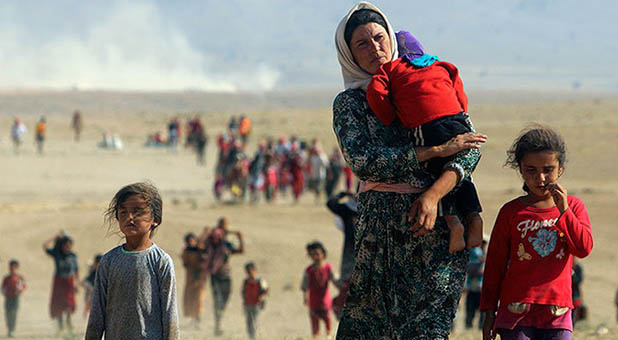Religious Freedom Bill Gets a Vote in the House
A bill in Congress to bolster the U.S. response to persecution of Christians and other religious minorities around the world took a big step forward Monday night.
House Resolution 1150, the “Frank R. Wolf International Religious Freedom Act,” came to the floor for consideration. And after 40 minutes of debate, it was adopted unanimously by a voice vote.
“The world is experiencing an unprecedented crisis of international religious freedom, a crisis that continues to create millions of victims; a crisis that undermines liberty, prosperity and peace; a crisis that poses a direct challenge to the U.S. interests in the Middle East, Russia, China and sub-Saharan Africa and elsewhere,” the bill’s author, U.S. Rep. Chris Smith (R-N.J.)—who chairs the committee that oversees human rights issues—said as the bill was being brought up. “A robust religious freedom diplomacy is necessary to advance U.S. interests in stability, security and economic development. Where there is more religious freedom, there is more economic freedom, more women’s empowerment, more political stability, more freedom of speech and less terrorism.”
Smith named the bill in honor of the work of former Rep. Frank Wolf, an internationally recognized advocate for religious freedom who authored the first U.S. international religious freedom bill more than 20 years ago. This update to the existing law:
- requires that international religious freedom policies must be integrated into national security, immigration, rule of law and other relevant U.S. foreign policy priorities;
- creates a Designated Persons List of individuals sanctioned for participating or directing religious freedom abuses;
- expands diplomatic training on international religious freedom for all State Department diplomats;
- creates a “tier system” for International Religious Freedom reports on countries of particular concern and a special watch list—similar to the tier system used in the Trafficking in Persons Report;
- requires annual presidential designations and actions on countries with severe religious freedom abuses;
- gives the president the authority to designate “non-state actors” as severe violators of international religious freedom; and
- requires that the ambassador-at-large for International Religious Freedom will report directly to the Secretary of State.
The bill was co-sponsored by Rep. Anna Eschoo (D-Calif.). It had more than 100 bipartisan cosponsors and was supported by a large ecumenical group of religious organizations and representatives of ethnic minority groups and non-government organizations.














































